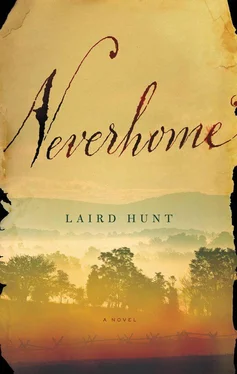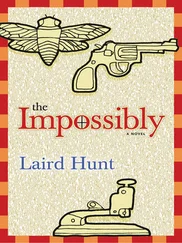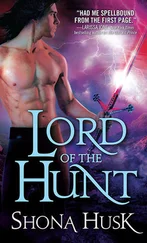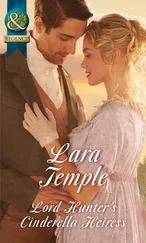Turned out we were walking through where one of the earliest skirmishes had been and some of the fallen had gone unburied and their bones had been scattered by animals and wind. Soon as we learned this we got bones on the brain and for the next mile, green and brown and mossy white was all we could see.
“There’s one over there,” someone would say.
Another would call out, “There’s a boot down there at the base of that tree still got some foot stuck in it.”
There were bones in the ditches, bones in the fencerows, bones in the cattails, and bones in a kind of circle at the shallow black bottom of a brook. There was some didn’t like all that calling out about bones and thought we ought to stop and do them their justice, regardless of whose they were, blue or gray, but the Colonel had his orders and the regiment was moving and we kept our mouths open and fingers pointing and left our shovels alone.
That feeling of wanting to bury the bones we saw, which had lingered long past the seeing of them, didn’t keep the boy with the skull from pulling it out when we tromped some miles later through a little town, nor from tossing it into the hands of a local belle turned out to watch us pass. A number of us gave out a good laugh when he did this. Not the belle. She neither laughed nor shrieked nor dropped the mossy thing but considered it a minute and then turned and set it carefully on the window ledge next to her. I looked at her over my shoulder a little and wondered at how, after that gift, her lips had made themselves into a strong little smile and at how she had met and held the eye of anyone who looked at or spoke to her as we all trooped past. There was a child or two in the shadows behind her. The front of the house was fire-blackened and the roof had been part stove in. My stomach gave a tug and I turned away but I didn’t stop thinking about her even when I ran off again to find a quiet spot. Who knew what the skull meant to her and hers. As I squatted there at my business, I tapped a time or two on my own skull to make sure it was still resting there snug on my neck.

My mother had a story she liked to tell about a man heard Death was waiting up around the bend. He changed his direction and walked the other way. You know how that ends. I had known it before I left for war and I knew it down there in the South with its bones and ball-stove roofs, so when the regiment’s numbers commenced again to drop after a call to double-time it up to the sound of the cannon we had begun to hear, I gripped harder at my Springfield and swung my cartridge box around behind me and quit my trips to the bushes and followed fast. I did not even start to imagine what it would be like not to follow. I was only sorry that I would be obliged to engage with my stomach in its poor shape. Not so sorry, though, that I slowed when a pair of corporals jogged down the line telling those who were too sick to drop back. Nor did I, nor any of those around me I am proud to say, slow down when the cannon fire grew so hot it seemed like the injury was already being done to us before we had fairly arrived and that we were already part of the world’s everlasting grief and glory, and we could see the trees crashing down destroyed in the heights and hear the sound, from all quarters, of hurt men letting the air out of their throats.
We started to see gray off at a distance, just little speckles of it but everywhere, and they had us take off our knapsacks and anything else wouldn’t help in the fight. I didn’t have time to be sorry to see Bartholomew’s likeness and all my letters from him go. I just untangled the sack like all those around me were doing and let it drop. We all but ran then. There was a company of ours up ahead having hell’s time and needed our help at holding the flank. I had stood at the picket and fired off my rifle at a man as I’ve already said, but there’s a first time for battles too. Some good number of us fell as we made the last effort, and the air filled itself up with smoke. It seemed like we would never get to where we were going and then we were there.
We had come to a field as long and wide as you like with us on one side and them on the other. It was their boys in their slouch hats and us in ours. If we’d been wearing the same colors, you could have thought it was a mirror. Like the central job of it was we were fixing to fire at ourselves. Like the other half of it, the mirror, was fixing to fire straight back. I got this idea I gripped hard on to that there had to be skirmishers go out first, that we would each send out a wave at each other, that it wasn’t yet time for the rest of us to fight. Our Colonel came riding up behind us about then and put that idea right out of my head. He rode up, then got down off his horse and gave his mustaches a twist and said we hadn’t come all the way over from Ohio to pick petunias, that it was time to bring thunder, to fling doom, to stand shoulder to shoulder and never fear the dark. While he made this speech the grays kept creeping forward and we did too and when we had both quit creeping our throats and eyes had already started fighting and our colors stood not forty yards apart.
There had been a sutler in camp just the day before had tried to sell off a set of iron armor could keep out, he had said, any bullet built by man and see you home to your loved ones but he had been laughed down. I got a picture of that armor in my head though when the gray volleys commenced and the boy next to me caught his ravishing and fell away just as we were lifting our guns. The boy on the other side of me croaked out about sure wishing he had a rock or tree to stand behind, and the old fellow been in plenty of fights next to him laughed and bit open a cartridge, sniffed loud, and said, “You are the tree, son.”

It was nothing but marching and battles, marching and double-timing and battles all the long days after that. Once, they put us on a train to take us farther east but I didn’t think about the world whooshing by, I just thought about the engine smoke in the cattle car they had us in and the boys couldn’t take the rocking and kept getting sick out the open door and a duckling-shaped bruise I had on my rear parts so I couldn’t show anyone made it painful to sit. Another time, after we had fought in a swamp had us picking leeches off our everywheres for days, they carried us where they wanted us in a boat sat so low in the water we expected the whole time anything like a wave would come by and Lee’s work would be done for him because we would all drown.
Each time we fought we took off our knapsacks and made a pile out of them. It got to where we’d feel the ground shake and start to shrug them off. I lost two knapsacks when the rebels took our ground and I quit carrying my photographs and letters in them. After I lost the second one I had Bartholomew get another likeness made. The likeness-maker mistook Bartholomew’s intention, figured him for a boy about to head off for the fight, and had him pose in his tall hat next to a weapon that it came off clear in the likeness Bartholomew wasn’t any too comfortable having to grasp. He wrote in the accompanying note that it was a counterfeit worse than any in the Confederacy, but I liked this picture of my soldier wasn’t any soldier holding his musket like it was a hot rake or a bear’s leg, and after I had looked at it a good long while, I sewed it into the wrappings I wore under my shirt.
I had been shy to send my own picture to him but after all those battles I thought I better get my own likeness taken before I got my ticket to hell or lost an eye or an arm. So I got myself a pass and walked the ten miles up the road to where I could catch a wagon into Washington City. It was my intention to spend the portion of the day I didn’t use in likeness-making to see some of the sights of that great city we were all defending, but the wagon I was riding in got stuck when the driver fell asleep and its mules ran it into some deep mud. It took two hours to fetch it out and by the time we reached the outskirts, which was nothing better than a few deserted houses, a kicked-in stable, and tents and cook fires as far as I could see, I knew it was going to be all I could do to make my way back at something like a reasonable hour. So much for sights and seeing. Luckily there was a likeness-maker said he had other likenesses to deliver to my camp when they were ready who had his wagon set up next to a tonic seller down along the banks of the Potomac. Now, there was a fine piece of wet property. I never saw our capital, and expect now I never will, but I saw its river and felt its cool waters, as I put my feet into it while I was waiting for my turn. There was a preacher down by the water hawking his wares too. There were preachers and men just liked to talk and tap a Bible at every turn of the war, and I listened to them about as much or little as anyone else, but this one, down by the waters of the Potomac, had a style to him that went beyond a handsome way to say Mary, Joseph, and Jeremiah . I considered a minute letting the fellow behind me skip over me so I could listen a little longer, but the hour was advancing and I had my chore to accomplish.
Читать дальше













